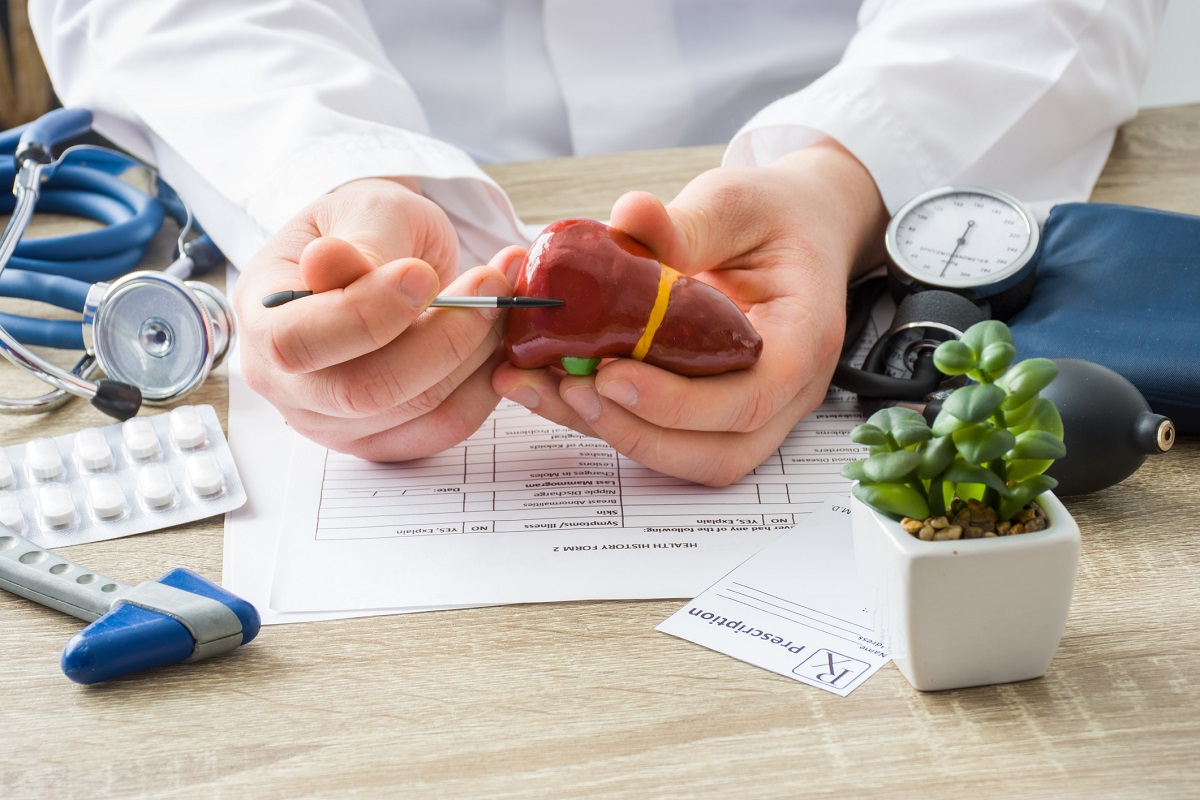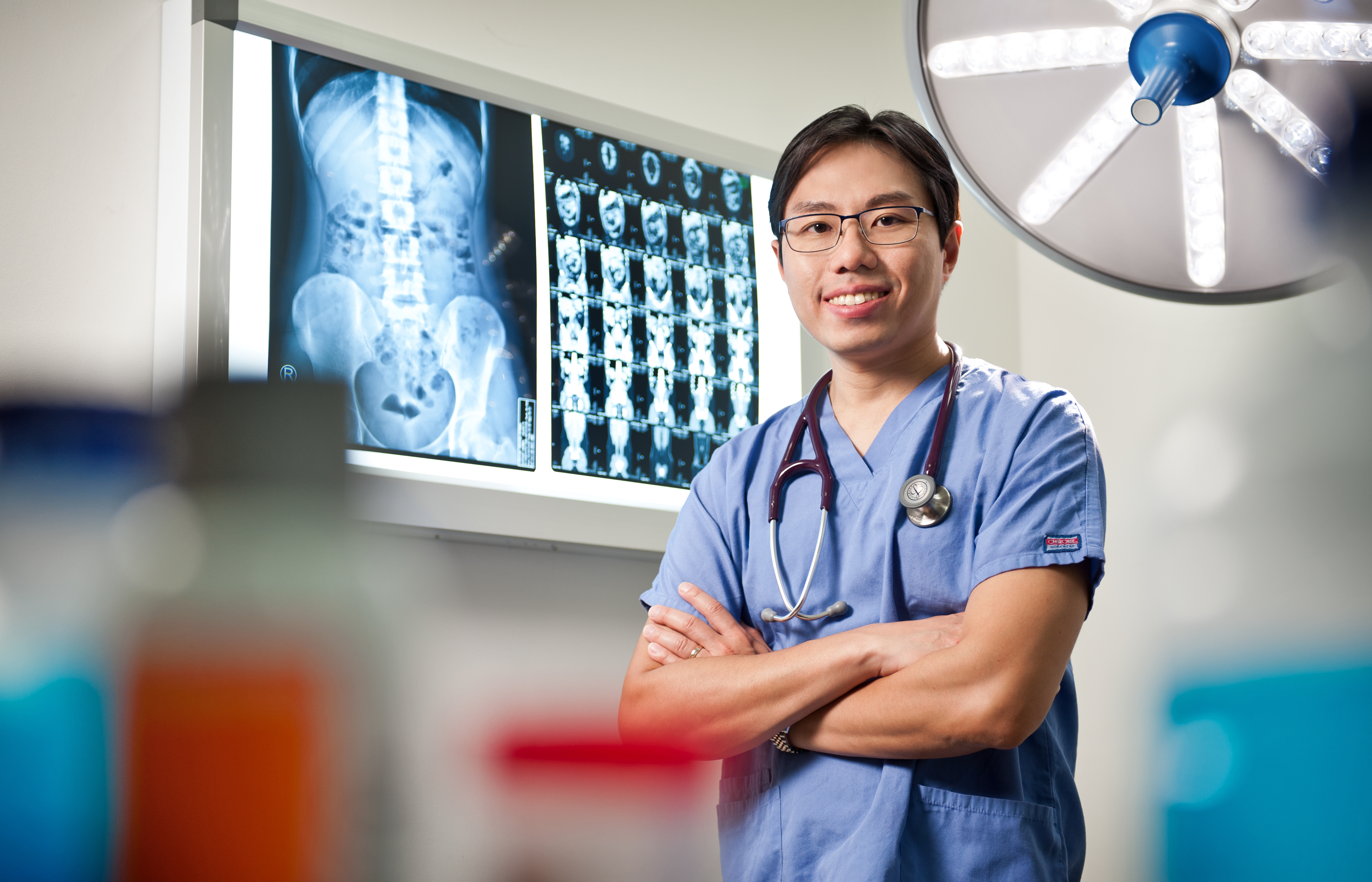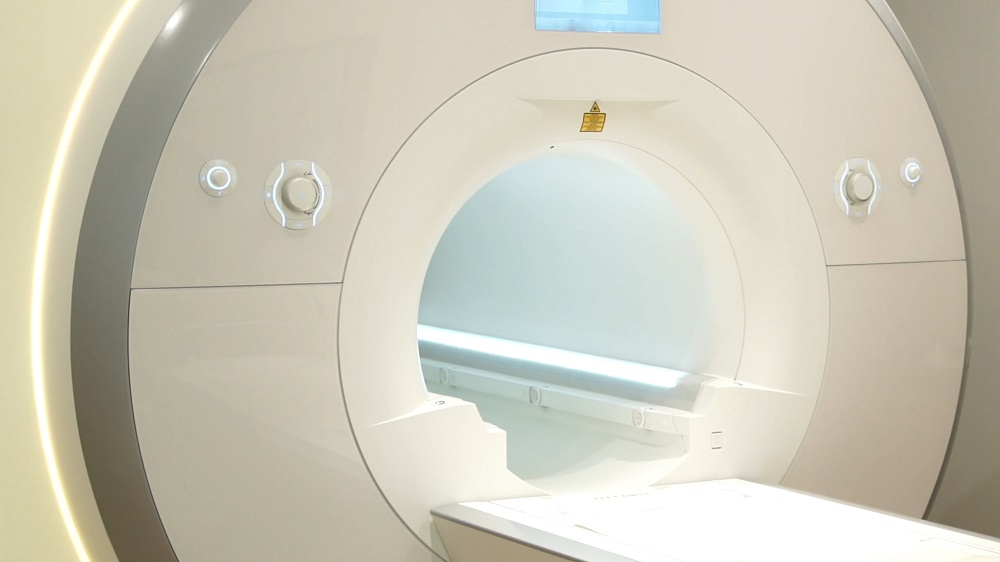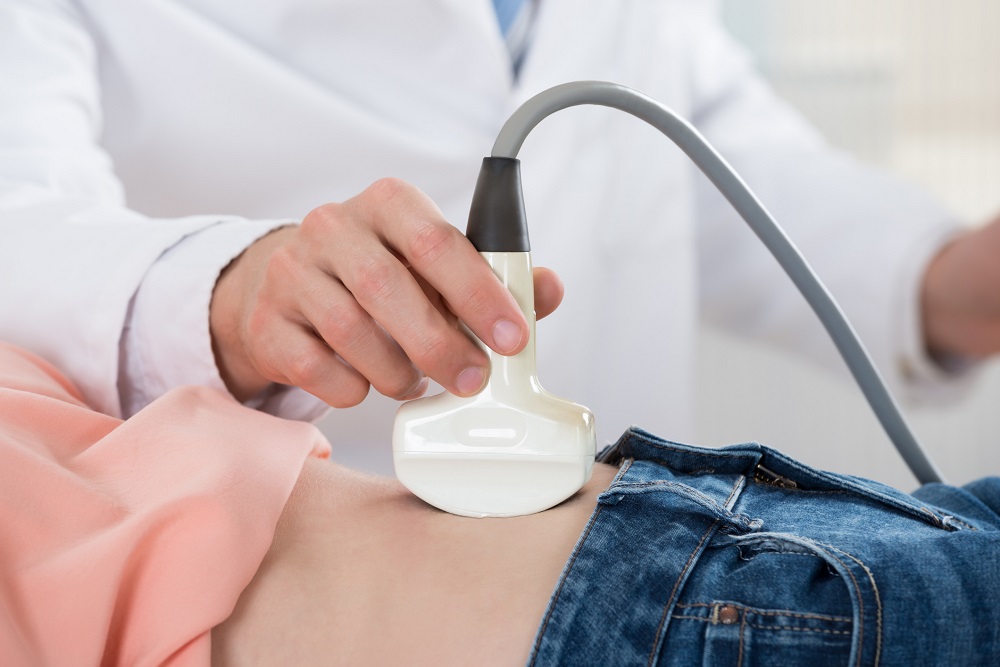



A FibroScan uses ultrasound waves and vibrations to measure the degree of liver fibrosis (‘hardening’). A healthy liver is soft, whereas a liver with fibrosis is hard. The presence of liver fibrosis indicates significant damage. If liver fibrosis is not treated, one may develop liver cirrhosis and liver cancer.
In the past, the assessment of liver fibrosis was done with a liver biopsy by a hepatologist. This requires the insertion of a large bore needle directly into the liver to extract liver tissue. It may cause pain and has a risk of bleeding. The FibroScan is a modern device, which obviates the need for a biopsy. It is painless and safe.
FibroScans are performed in individuals with liver problems, such as chronic viral hepatitis (e.g. Hepatitis B or C) and fatty liver which are common in Singapore.
Our FibroScan machine at Nobel Gastroenterology Centre is equipped with additional technology called Controlled Attenuation Parameter (CAP) which quantifies the amount of liver fat. This information enables us to track the progress of a patient with fatty liver disease.

A CT scan examines solid organs (e.g. liver, pancreas, kidney, spleen) in detail. However, it cannot accurately examine hollow organs like the stomach and colon. Endoscopy (gastroscopy and colonoscopy) are more accurate in evaluating hollow organs, so they are complementary for the evaluation of digestive problems, because the abnormality may lie either in solid organs like the liver and pancreas, or hollow organs like the stomach and intestine.

The MRI scan is a painless diagnostic test, which utilises a magnetic field to generate images of the human body. Unlike a CT scan, the MRI scan is free of radiation. To perform this test, a patient is asked to lie on a special bed, which enters the MRI machine. This scan takes forty-five minutes to an hour to complete. During the procedure, contrast may be given via an injection.
The MRI scan is suitable for pregnant women and children. However, individuals who have non-MRI compatible metal implants in their body (e.g. pacemaker, artificial heart valves) cannot undergo this scan.
MRI scan is used to examine the liver and pancreas for abnormalities. It can also examine soft tissue, nerves and joints with a high degree of accuracy. The MRI scan can image the small intestine via a special protocol called an MRI Enterography.

A limitation of this scan is that ultrasound waves cannot penetrate an organ with air. Hence, it is unable to examine the stomach, small intestine or colon. Organs that are deep in the body, like the pancreas may not be visualised as well.
Dr Wang Yu Tien joins us with nearly 20 years of experience from Singapore General Hospital where he was senior consultant, director of research and a faculty of senior resident training at the department of Gastroenterology and Hepatology. He is experienced in managing the full spectrum of gastrointestinal and liver diseases as well as endoscopy. His subspecialty interest is digestive function disorders (e.g. Gastroesophageal Reflux and Irritable Bowel Syndrome). He was also the former director of the Gastrointestinal Function Laboratory at Singapore General Hospital and past Scientific Chairperson of the Gastroenterology Society of Singapore. He has published in top gastroenterology journals and is the current Gastroenterology specialty editor of Singapore Medical Journal.

Dr Eric Wee is a Gastroenterologist who manages all aspects of digestive, bowel and liver conditions. His subspecialty is in advanced endoscopy. Dr Wee is a member of the Royal College of Physician (UK), member of the American Gastroenterology Association (USA), member of the Faculty of Medical Experts (Academy of Medicine) and a fellow of the Academy of Medicine (Singapore). He has held senior appointments such as the Head of the Division of Gastroenterology at Khoo Teck Puat Hospital, Chairman of the Nutrition workgroup and Associate Program Director of the NHG Gastroenterology Residency Program.

|
15 minute Consultation |
Specialty Case |
|
1st Consult |
$120 |
|
Follow up |
$90 |
A charge of $30 apply for every additional 10 minutes with the doctor.
Delivery of Medication:
Sentosa and Airport – $10
Thank you for choosing Nobel's Tele-Consultation service. At Nobel, we strive to provide you with a seamless and effective healthcare experience. Our Tele-consultation service is different than other providers as we can schedule a tele-consult with your preferred doctor through our Platform.
Please go through the below terms and conditions for our Tele-Consultation process including your rights and responsibilities of this platform. These Terms and conditions, together with our privacy policy constitute an agreement between you and Healthway Medical group.
With this tele-consultation service, you may consult a doctor on non-urgent clinical matters without leaving your home.
Follow up for Gastroesophageal Reflux, abdominal discomfort, constipation, diarrhoea, Irritable Bowel Syndrome, Chronic hepatitis B, C and fatty liver disease
If you are experiencing a medical emergency, please call an ambulance at 995 or make your way to the nearest Accident & Emergency department immediately. If it is not an emergency, but you do not meet the requirement for telemedicine please call our clinics for an appointment.
1. Fill in the online registration form and make an appointment with your preferred doctor.
2. Complete the payment details before submitting the online registration form.
3. You will receive an SMS and Email to confirm your registration.
4. As the tele-consult request needs to be approved by the doctor, you will receive an SMS and Email confirming your request.
5. You will receive a video consultation link by SMS and Email when your appointment is near.
6. Click the link to start your consultation.
7. Once complete, you will receive a link by SMS and Email on the amount payable to the clinic.
8. If you have selected delivery of medication, a delivery fee will apply to your final bill amount.
A standard delivery fee of $15-20 will be charged for medication delivery.
Please do note surcharges apply to the following area:
Your medication will be delivered to your address via a courier.
At the time of registration, we charge an amount of $1 to authenticate your credit card. However, please note that this amount is immediately reversed once your request is submitted successfully.
Payment is made via your submitted credit card details at the time of registration.